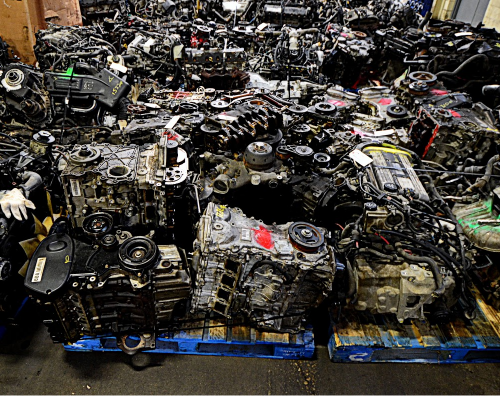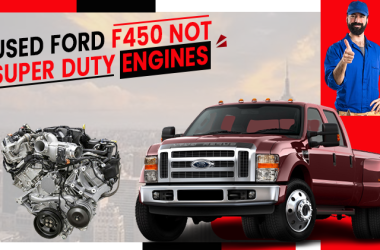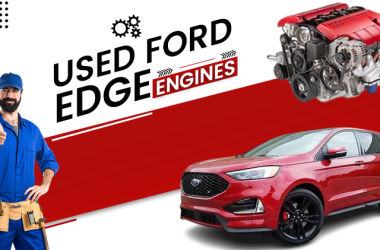One of the first things that comes to mind while looking for a used engine is how long it will last once installed. The answer to this question is contingent on a number of factors, including your driving habits and the rebuild’s quality.
If you install the used engine correctly, you may not have to worry about the engine in your automobile for a long time.
Although mileage only accounts for around half of what influences how well an engine performs over time, the average lifespan of an engine in miles can range from 50 to 200K. In addition to routine maintenance like as oil changes and spark plug replacements, fuel additives and air filter replacements are also vital for lifespan; these items have less friction than internal parts, so they move more smoothly and wear out less rapidly.
Precision, patience, and intelligence are all required while rebuilding an engine. Most essential, the correct instruments are required to do the task.
What exactly is a used engine? It’s an engine that’s been rebuilt to strict specifications by highly trained machinists utilising cutting-edge technology and components. During the remanufacturing process, several new components were added that meet or exceed original equipment performance criteria.
How long will a used engine last?
Used engines have been proclaimed to be superior to factory-installed engines in terms of dependability, reliability, and warranty coverage.
When it comes to engine maintenance, the most dependable and cost-effective option is to replace your present engine with a used engine, which provides greater gas mileage and emits less emissions than a worn-out engine. Consumed engines also conserve energy and resources by reducing the amount of energy used to process discarded engines and cars, as well as the energy and resources necessary to produce new engines.
So, how long can a used engine last?
A usefd engine usually comes with a one-year or 12,000-mile warranty. Some engine repair professionals provide 36-month guarantees with unlimited mileage. Before making a selection, inquire about your auto shop’s warranty on rebuilt engines.
Not every engine problem necessitates a replacement. Many times, the issues are minimal and simply require basic engine repairs.
Factors that make engine long lasting
An engine is like the heart of a car. It needs to run smooth in order to keep your car moving, so the factors that make engine last longing are:
#1. Change engine oil at regular intervals
Changing engine oil regularly keeps all moving parts well lubricated so that wear and tear is minimal. This will ensure that you engine runs smooth and cool.
#2. Keep check on the cooling system
A lot of energy is lost during combustion in the form of heat. Metals and alloys, which your car engine is made out of, are not very good friends with heat. Always ensure there is ample coolant in the tank as it is very important for heat dissipation.
#3. Let it breathe
A constricted air flow can cause the fuel to not burn completely, in turn increasing emissions and reducing mileage. Check the air filter and get it cleaned/ changed whenever you feel there is too much dirt and debris stuck to it.
#4. Look for leaks
When you pull out of the driveway, stop and look at the parking spot for any fluids on the ground. If the fuel is leaking, you should visit the nearest mechanic and get it checked.
#5. Don’t keep going on reserve fuel
Petrol contains sediments which settle at the bottom of your tank. Years of running and there will be definitely a layer of crap which shouldn’t reach the engine. So, top up your tank and save yourself repair/ replacement cost of the fuel filter and pump.
#6. Check your belts
Rubber belts are essential links to keep everything in tune when an engine runs. If you hear a squeal coming from under the hood, it is time to replace them.
#7. Don’t ignore the check engine light
This light is your car’s subtle scream for help. Never ignore this and immediately get the car inspected by your local mechanic.
#8. Replace your fuel filter
It’s similar to the oil filter but filters out junk from the fuel, prohibiting entry into the combustion chamber. A new filter means free flow of clean fuel to the fuel pump and engine. This ensures there is less build-up inside the engine and its thirst for fuel is quenched.
#9. Replace spark plugs and wires
The spark plug acts as a fire starter. It ignites the air-fuel mixture in the cylinders and requires little maintenance owing to its long life span. Regular maintenance will ensure that the engine retains its spark.
#10. Your engine doesn’t like revving just to come to a complete halt
Engines are engineered to run at constant speed. This is when they perform the best. Too much variation in the revs tires it out and this takes a toll. City driving, where you constantly move and come to a stop is really hard on the engine. Try not to rev too hard. Instead, be sure footed and don’t over-accelerate when you know you have to stop again. Try sticking to the highway whenever possible. This will give you better mileage (now you know why driving on the highway results in less fuel consumption) and keep that engine running for longer.
These checks should keep your engine healthy and save you a lot of money in repairs/ replacement/ maintenance. The engine is the most expensive and complex part of your car. It demands good care and will return the favor by fetching a good resale value when you plan to sell your car.
Used engine span time.





